It’s been another whirlwind year in Paris for Emily Cooper. Three seasons into her adventure abroad, she’s really settled into life in the city. Though her French remains charmingly poor and her mishaps entertaining, Emily has found her stride at the marketing firm Savoir. She’s become close friends with fellow expat Mindy and has a promising career helping luxury brands expand their reach online.
Of course, Emily’s personal life remains complicated. Her feelings for charming restaurateur Gabriel have only deepened since they met. Though they’ve tried to keep things casual, it’s become clear that there’s real chemistry between them. Unfortunately, Gabriel’s ex, Camille, has never fully accepted their breakup. Last season, Camille took her resentment to shocking new heights by calling off her own wedding at the altar, claiming falsely that Gabriel still had feelings for Emily.
Now in Season 4, the fallout from Camille’s stunt means Emily and Gabriel find themselves in an awkward new phase. Both have feelings for each other but don’t want to upset Camille or Emily’s British boyfriend, Alfie. With so much history between the trio, navigating their tangled love lives won’t be simple. Emily will need to reflect on what and who will truly make her happy in Paris.
If previous seasons are any indication, Emily’s latest challenges in romance and career will be light and fun. However, Season 4 also takes on a few deeper storylines that shake things up. Most prominently, Emily’s boss, Sylvie, deals with uncovering and addressing sexual harassment from her past. It remains to be seen if Emily in Paris can handle such weighty topics while keeping its trademark charm. One thing is certain: Emily’s adventures in the world’s most romantic city are far from over.
Character Growth in Question
By the time Season 4 begins, you’d think we’d see some meaningful evolution for Emily and her friends in Paris. Instead, things feel frustratingly familiar. Emily continues waffling between reliable Alfie and passionate Gabriel. Both men deserve better than her indecision at this point. Meanwhile, Camille has become tedious playing the scorned ex, disrupting Emily’s potential happiness every chance she gets.
Some growth finally happened when Camille imploded at her own wedding last season. But with her renewed pregnancy claims in Season 4, it’s like she’s purposely going backward. There’s depth left undiscovered in Camille’s character that could make her much more than a one-note rival. Even Mindy, usually the most fun girl, floats through these episodes without leaving much impact. Her relationship with Nick moves at a glacial pace.
Sylvie proves the exception, confronting her difficult history in a nuanced storyline about workplace harassment. It’s engaging watching her find the strength she’d buried long ago. But the plot loses steam without a satisfying resolution. Overall, these characters feel stuck spinning their wheels, failing to expand much beyond the surface.
Potential also goes untapped with Julian, Emily’s resentful friend turned rival. While she treats him poorly at times, Julian’s anger could hint at real hurt left unresolved. Their dynamic deserves more care than the petty squabbling it gets. With rich source material in these characters, it’s a letdown how little Season 4 digs into developing any of them substantially.
In previous seasons, Emily’s wide-eyed newcomer perspective kept things light and entertaining. But by now, her friends have become Parisians too. It’s past time for Emily and company to continue learning and growing from their experiences, not just reliving the same dramatic beats. Their stories would benefit from delving deeper into who these women and the city have helped each other become.
Love Triangles, Old and New
The first five episodes of Season 4 see Emily at a familiar crossroads, stuck once more between steady Alfie and passionate Gabriel. With Camille no longer an obstacle, you’d think Emily and Gabriel could finally be together, yet here we are again. Alfie deserves better than her stringing him along too.
It’s tedious to see this indecision persist after three seasons. And just when you thought Camille was out of the picture, she finds new ways to meddle in Emily and Gabriel’s paths. Her antics wear thin, reducing an intriguing character to little more than an annoyance. Camille became so much more than this petty rivalry.
Meanwhile, Mindy’s relationship with Nicolas develops at a snail’s pace. Their scenes fail to offer meaningful insights into who they are together. The potential for exploring Mindy’s career ambitions and cultural clashes within an interracial romance goes untapped. With little progression season over season, it’s hard to care about “Mintrice.”
To keep viewers invested, shows need relationships to evolve in interesting ways. But these subplots tread ground well-worn. Some, like Mindy and Camille’s arcs, feel beyond saving without a creative overhaul. Others, like Emily’s indecision, test patience. One can only hope Season 4’s latter half delivers nuanced turns that re-energize these characters and relationships. For now, it’s more of the same.
A Tale of Two Plots
The introduction of a #MeToo-inspired storyline in Season 4 raised expectations around Emily in Paris delving into more serious subject matter. Focusing on sexual harassment allegations against Louis de Leon, it presented an opportunity for nuanced commentary.
Yet within the first five episodes, this plot amounted to little more than a backdrop for other tales. We learn of Sylvie’s traumatic experience working under de Leon years ago. But her decision to come forward receives no meaningful exploration. Instead, it’s treated as an inconvenience for Laurent’s business dealings.
Mindy and Nicolas’ relationship similarly overshadows the misconduct allegations leveled against Nicolas’ father, de Leon. Their romance takes center stage even as it intersects with a real-life social issue deserving far more respect and care.
Part 1 concludes without resolution. Whether the de Leon plot will resurface and, if so, in what form, remains unclear. But for now, it falls short, failing as both a vehicle for thoughtful messaging and character development.
By introducing #MeToo only to largely sideline it, opportunities were missed to match Emily in Paris’s lighter tone with grounded wisdom. Sweeping harassment under the rug also doesn’t align with progress seen elsewhere on screen. Viewers hoped creativity could promote positive change.
While entertainment needn’t mirror reality exactly, this missed step reinforces opinions because the show favors style over substance. With its massive platform, more meaningful change was well within reach. With any hope, Part 2 will remedy this promising yet problematic start.
Style over substance in Emily in Paris
Emily in Paris built its popularity on being a fun, lighthearted romp through one of the most romantic cities in the world. But four seasons in, it seems to have lost its way. While Luc’s antics still raise some chuckles, much of the humor feels forced. Beyond a few comedic high points, there’s little wit or warmth to be found.
More disappointing is the show’s superficial representation of Paris. Repeated locations and backdrops that merely pay lip service to famous landmarks don’t invoke the real charm and character of this culturally rich city. The plots plod along without truly capturing the heart and soul of their settings or people.
This lack of authenticity extends to the characters as well. Emily remains stuck in an endless will-they-won’t-they loop with Gabriel and Alfie, without much growth beyond shallow romantic dilemmas. The other characters get similarly short shrifts, their arcs lacking depth or nuance. Even a serious plot around workplace harassment falls flat, treated as a mere plot device rather than an opportunity for meaningful commentary.
It’s a shame to see a show with Emily in Paris’s potential and platform settle for an emphasis on style over substance. At its best, it offered light-hearted escapism paired with relatable adult themes. But by drifting from humor, heart, and grounded representation, it lost the very qualities fans loved. The city of lights deserves better than to serve as a pretty backdrop, just as viewers merit stories that invest as much care in characters as costumes. With charm and cultural sensitivity in short supply this season, it seems this world of aspirational fantasies risks becoming stale.
Missing the Magic of Early Seasons
While Emily in Paris remains lighthearted escapism, season 4 feels stagnant compared to its predecessors. The will-they-won’t-they between Emily, Gabriel, and Alfie has lost steam after relentless rehashing. Their triangle now inspires weariness rather than anticipation of who she might choose.
Even Camille, a character with potential for nuanced growth, remains stuck in antagonist mode. One can’t help but reminisce fondly about season 1, when her charisma and vulnerability shone through. The show seems to have forgotten more compelling directions for developing its characters.
We also see fewer of Paris’s charms that first drew us in. Memories of Emily experiencing the city’s culture and romance are far more evocative than her latest marketing mishap. The workplace intrigue that engaged us in past seasons now gets resolved neatly, lacking real stakes.
Nostalgia creeps in during lackluster episodes that feel like filler. We recall season 2 highs like Emily adjusting to French living or bonding with her friends. Those personal arcs and comedic moments left lasting impressions in my heart and imagination.
While it’s still enjoyable background viewing, season 4 offers mostly surface escapism where deeper stories once thrived. With so much untapped potential in its characters and setting, one hopes Emily in Paris rediscovers the spark of creativity that gave early seasons enduring magic. Nostalgia alone won’t sustain the series indefinitely.
Questions Raised About What’s Next
After the first half of Season 4, there remain open questions about where Emily in Paris is headed. While the show remains lighthearted escapism for many, the minimal character growth and repetitive story beats leave one wondering how the writers plan to sustain interest.
Emily’s indecision around Gabriel and Alfie continues without much progression, while side characters like Mindy and Sylvie have yet to receive meatier arcs. Camille remains frustratingly stuck as the antagonist rather than evolving further. Even the #MeToo storyline introduced failed to leave a real impact.
With little substantial change over multiple seasons, the potential now seems limited for stretching Emily’s journey in Paris out much longer. Her fish-out-of-water adventures are charming but start to feel stale without meaningful character developments to latch onto.
The creative team has shown skill in providing gorgeous visuals and delightful outfits. But to keep audiences engaged, more is required than charming aesthetics and will-they-won’t-they romance. A deeper exploration of character psychology and relationships would benefit the show.
Only time will tell if the remainder of Season 4 manages to take the story and characters to a new level. If not, Emily in Paris may find its formula has reached its natural endpoint. But for now, fans retain hope that the magic can be recaptured and the questions posed find answers that refresh what’s been a comforting pandemic diversion.
The Review
Emily in Paris
While Emily in Paris remains enjoyable fluff for some viewers, season four lacks meaningful progression for its characters or story arcs. By rehashing the same romantic triangles and workplace hi-jinks without much growth, the show starts to feel stale and runs the risk of overstaying its welcome if it doesn't evolve soon.
PROS
- Beautiful cinematography and costume design showcase Parisian settings and fashion well
- A lighthearted and sometimes funny storyline provides temporary escapism
- The character of Luc stands out as the most entertaining aspect
CONS
- Lack of significant plot or character development across multiple seasons
- Emily and Gabriel's will-they-won't-they drags on without resolution
- Other characters, like Mindy and Camille, are not utilized to their fullest potential
- Major social issues like the #MeToo storyline are poorly handled
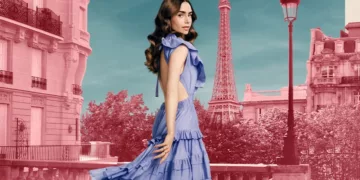








































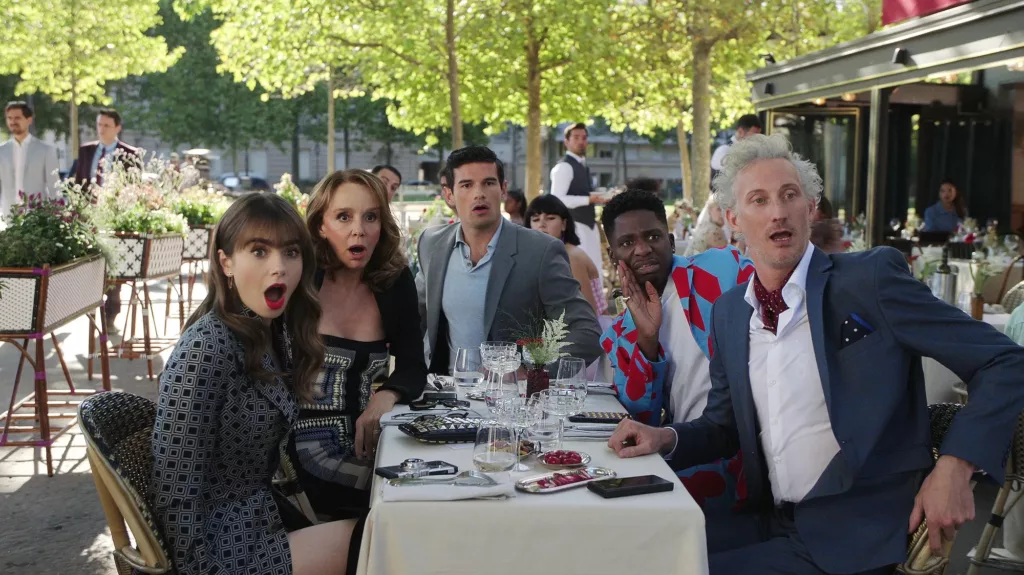
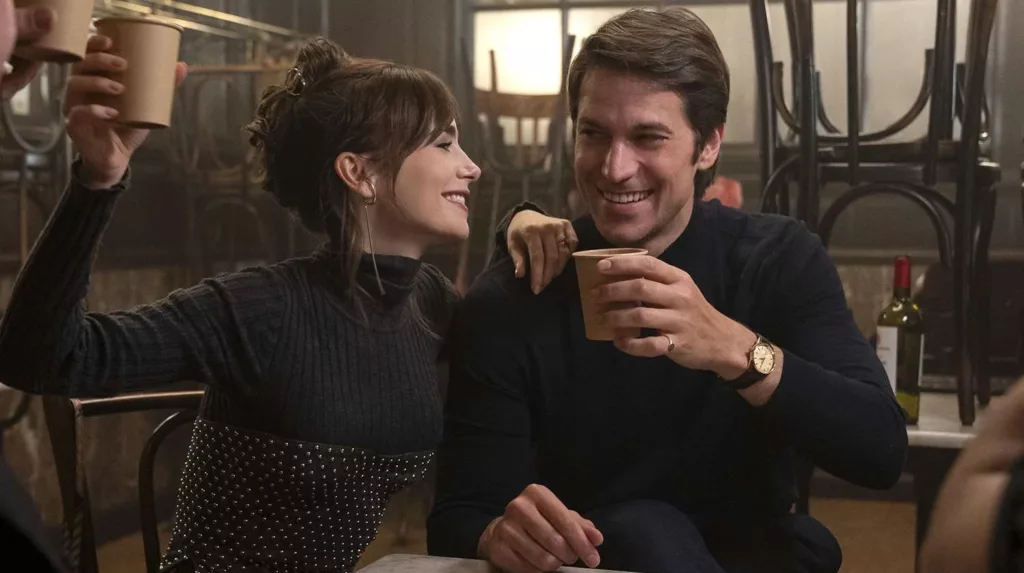

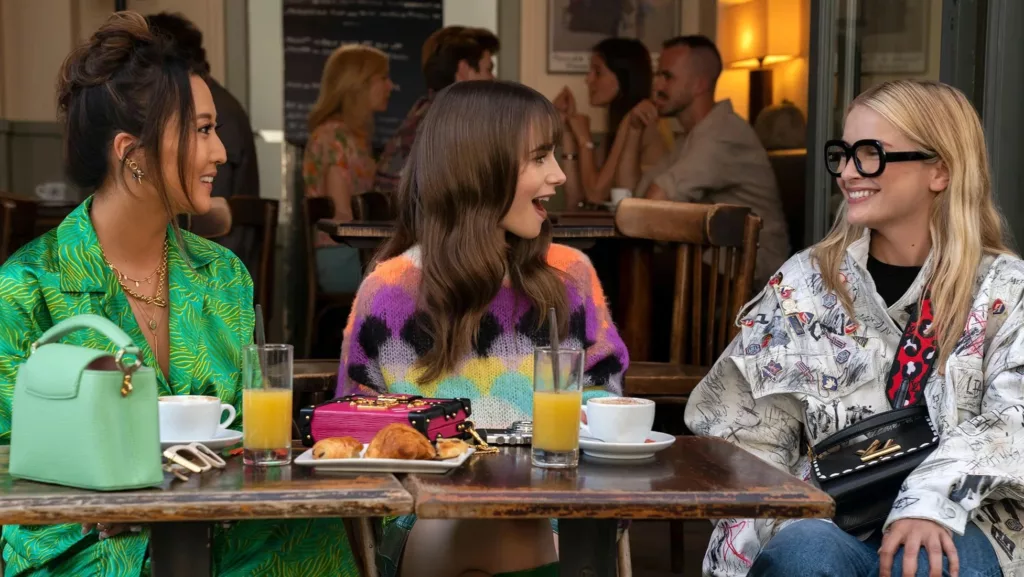
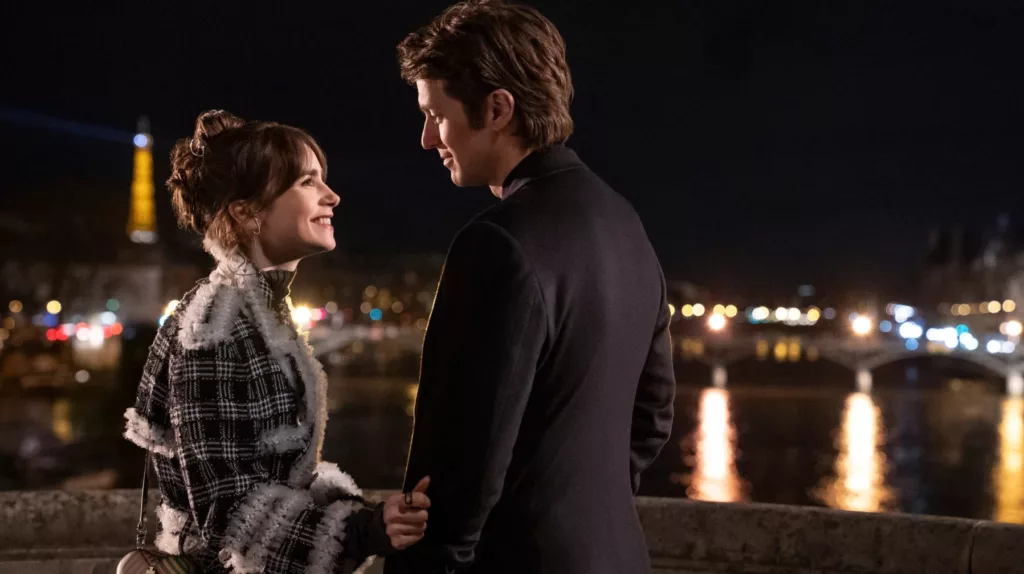








Discussion about this post